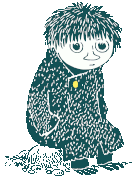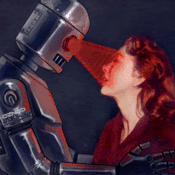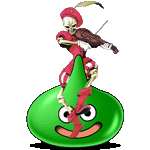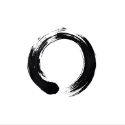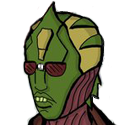|
Yeah I totally forgot about this somehow as well, thanks for the heads up. I'm really looking forward to it.
|
|
|
|

|
| # ? Apr 26, 2024 07:17 |
|
The beginning is up here if you wanna try before you buy.
|
|
|
|
Pierat posted:The beginning is up here if you wanna try before you buy. It's actually from a bit about four or five chapters in, though it would work well as an opening. I've read the first six or so chapters and it's pretty solid. Nothing particularly supernatural, but it is weird having Murakami characters listening to music on CDs instead of vinyl or something.
|
|
|
|
I still think Murakami's best medium is the short story, and I wish he'd put out another collection.
|
|
|
|
Pfirti86 posted:I still think Murakami's best medium is the short story, and I wish he'd put out another collection. He released an original short story collection a few months ago called "Men Without Women". No word on when it'll see a release outside of Japan but I estimate it'll be early next year (to stagger with the release of his new novel).
|
|
|
|
About 2/3rds of the way through Colorless Tsukuru Tazaki and His Years of Pilgrimage (dang, that title is a mouthful) and I've been enjoying it so far. It's definitely a lot better after the misstep that was 1Q84, that's for sure. It's nothing new for Murakami but heck, that's why I picked it up. It's nice and familiar. Though at this point my main concern is the truth behind the rape allegations since I feel the way they resolve that could be what makes or breaks it for me. Still, the premise makes it very easy to write scenes where Tsukuru gets to walk around and just talk to people in the usual sort of conversations in Murakami's books. I'm satisfied with that.
|
|
|
|
I finished it last night. Not my favorite Murakami but it was still pretty enjoyable.
|
|
|
|
This is some oldies Japan, but I've been reading through The Pillow Book and really like it. Tale of Genji is super crazy long and mildly rapey, though the translation I'm reading has some beautiful passages. I think it's really cool that I'm able to peek into a window of court life that existed over a thousand years ago, and is in a lot of ways completely alien to modern etiquette.
|
|
|
|
Does anybody have some resources on pen names, poetry names, or things like that for Japanese authors? I'm working on a short story about Bakin and the moment and almost every other reference to him by another character uses one of his many, various pen names. I get that authors have pen names for writing poetry, but is there any rhyme or reason to it?
|
|
|
|
Rollofthedice posted:This is some oldies Japan, but I've been reading through The Pillow Book and really like it. Tale of Genji is super crazy long and mildly rapey, though the translation I'm reading has some beautiful passages. I think it's really cool that I'm able to peek into a window of court life that existed over a thousand years ago, and is in a lot of ways completely alien to modern etiquette. If you liked that, check out the Tale of the Heike. Definitely quicker paced than Genji and it held my attention a lot better. Both are excellent though.
|
|
|
|
Rollofthedice posted:This is some oldies Japan, but I've been reading through The Pillow Book and really like it. Tale of Genji is super crazy long and mildly rapey, though the translation I'm reading has some beautiful passages. I think it's really cool that I'm able to peek into a window of court life that existed over a thousand years ago, and is in a lot of ways completely alien to modern etiquette. There are quite good translations of Heian literature, both fiction and "diaries". If you want to know a little more about that specific time period, I can recommend Ivan Morris' The World of the Shining Prince. (There are other good books on the Heian that are written for the lay person but Morris deals specifically with Murasaki's era.)
|
|
|
|
I just read Confessions of a Mask, although it was his first novel, I read it after having already read nearly all of his other books. It's surprising to me that this book is his most popular one, since I found it to be relatively boring (meaning, still very exciting, just not to the same extent). Something is just missing from that book. My favorite is his last book, Decay of the Angel. It's immensely interesting in that he appears to be mocking the kind of outlook he himself still held while writing Confessions, it makes me wonder what actually went through his head around the time of his death. I don't think Mishima was really a fascist. He had a certain sexual investment in fascist aesthetics, but he seems to have agreed on many things with the radical communist student movements (and the villains against whom his "fascist" heroes fight are always capitalists, zaibatsu guys in three piece suits), and in his final speech he seems to have sympathized with the anti-Vietnam war protests, and criticized the LDP on the grounds that they were American lackeys. Mishima called on the SDF to change the constitution so that they could stage a coup to stop the LDP and fight American imperialism. It's an ironic twist of history that the same LDP is now changing the constitution to create an army precisely to further American interests, I wonder what he would have said about it if he were still alive. Maybe something stupid, who knows.
|
|
|
|
There's a line by Slavoj Zizek where he's talking about suicide bombers and he says something about how it's not that they literally believe that if they blow themselves up that they'll be lifted off into heaven with the 72 virgins. It's really more of a desperate act to crash all doubt. "If I blow myself up, I'll prove through my act what I wasn't ready to believe in." And I've always attributed that to Mishima. I like to look at his entire life as one overlong piece of bizarre performance art. For some reason I feel like people always examine him from a context that's divorced from his writing and make him out to be this supremely confident uber-nationalist, when anyone who's ever read any of his books knows that he was deeply insecure and troubled dude. His most popular books (Confessions of a Mask, The Sea of Fertility tetralogy), to me, are meant to embody how he's struggling to reconcile the person he is with the person he thinks he should be in Japanese society.
|
|
|
|
Mira posted:There's a line by Slavoj Zizek where he's talking about suicide bombers and he says something about how it's not that they literally believe that if they blow themselves up that they'll be lifted off into heaven with the 72 virgins. It's really more of a desperate act to crash all doubt. "If I blow myself up, I'll prove through my act what I wasn't ready to believe in." Yeah, I thought of that too, and a lot of scholars argue something like that about Mishima. He basically saw all intellectual activity as imperfect, trying to reach a certain goal but never arriving there, and all action corrupted by thought (basically a variation on the problem of the linguistic turn, an attempt to get to the Thing beyond language). He wanted pure "action" (whatever that meant) without language and thought getting in the way. His way of reaching this state of pure activity was bodybuilding and fascist aesthetics and so on, but it's clear that he realized that this was actually a failure. Toru in the final novel is Mishima's image of his own failure, a cruel, worthless imitation of an imagined past. Sheep-Goats posted:Love Mishima. Mishima rules. Books like Mishima's books are the reason I read. Each one exists in a space that was not there before the book was written, and yet those spaces are not safely separate from our world like Murakami's are, but set right up against it, very much eager to invade. Yeah I feel the same way. Murakami is like Pynchon or Vonnegut: he falls all too easily into that boring tendency towards distance and easy withdrawal. If anything, Mishima was decidedly against what we would now identify as "western Buddhism", where we are always called on to maintain a distance from the world and let things be as they are. I suppose that's why Murakami is so popular with yuppies. Shibawanko fucked around with this message at 01:35 on Aug 27, 2014 |
|
|
|
Srice posted:About 2/3rds of the way through Colorless Tsukuru Tazaki and His Years of Pilgrimage (dang, that title is a mouthful) and I've been enjoying it so far. I actually liked 1Q84 better than Colorless Tsukuru Tazaki, but he definitely could have done without restating the same things over and over in that book. I found the ending of CTT pretty unsatisfying, but maybe that's the point.
|
|
|
|
In regards to Mishima, at least to me he always seemed to have to periods in his life. Early on where he felt that he did not live up to what he was supposed to be based on what he felt that society told him to be and then later in life where he felt like he had achieved that, but society suddenly abandoned many of the values he had absorbed and internalized when he was young. It all culminates in the failed coup and his death.
|
|
|
|
Has anyone here read Mishima's Utsukushii Hoshi? What was it like and is it a good read? Mishima wrote a lot of pulp stuff on the side and I'm interested in reading that too. Currently reading Forbidden Colors again. The way he describes the gay bar sounds like so much fun that it makes me want to head over to nichome and attempt to become gay somehow.
|
|
|
|
Shibawanko posted:Has anyone here read Mishima's Utsukushii Hoshi? What was it like and is it a good read? Mishima wrote a lot of pulp stuff on the side and I'm interested in reading that too. I've always been interested in Utsukushii Hoshi but sadly there's no translation out there. There seem to be some cheap copies online in the original language. With the sheer volume of his stuff that's been translated it seems like a conscious omission!
|
|
|
|
drat it! Time to saddle up and become good enough at Japanese I guess.
|
|
|
|
My question to those who have read Mishima in his original text. Is it more, or less long winded in its descriptions and narration? I'm asking about his later work, since stuff like Confessions of a Mask, Sound of Waves or Sailor Who Fell From Grace are anything but long winded. But in English translation, the tetralogy certainly was. Simple scenes from Running Horses took like 10 pages to do what most authors can do in 3 graphs.
|
|
|
|
The only thing I've heard from Japanese readers is that Mishima's Japanese is odd, almost like reading another language in translation.
|
|
|
|
Can anyone recommend any books of or about Haiku? I've started jotting some down in the time I have between classes and it's made me curious about the actual form/content/aesthetic movement/critical understanding behind them.
|
|
|
|
Can anybody explain the ending of Kafka on the Shore to me, as well as the significance of Johnny Walker, if there is in general anything more to him than what he alleges to be? I general I was able to follow what happened fairly well, and the oddities I chalked up to magical realism, but the conclusion really left me feeling like there was something in the story that I wasn't getting.
|
|
|
|
Has anyone read Murakami's first two novels (Hear the Wind Sing and Pinball, 1973)? They're really rare in English, apparently, but I just learned that my local university library has copies of both if I want to read them.
|
|
|
|
wocobob posted:Has anyone read Murakami's first two novels (Hear the Wind Sing and Pinball, 1973)? They're really rare in English, apparently, but I just learned that my local university library has copies of both if I want to read them. I've read them, actually they're the only Murakami novels I've read. HtWS blatantly copies Vonnegut (it says "so it goes" every other line) . Pinball is a bit better. They're just kind of middle of the road commentaries about alienation and tedium.
|
|
|
|
They kinda set the tone for what Murakami is trying to accomplish with his works down the road. They're both pretty okay books, but nothing spectacular. I liked Pinball the best out of the two.
|
|
|
|
I picked up The Doctor's Wife by Sawako Ariyoshi at random and it's really good. It's about a late 18th century doctor who invents a general anaesthetic, while his mother and wife fight in the background. It's very spare and upsetting:quote:Once home, Kae's mother ordered the maids to boil water, and Kae to wash her hair in preparation for her lengthy confinement. The pain, which became excruciating at times, surprised Kae by its unnatural force and then by its sudden disappearance. Her body was wracked with groans, which she could not suppress, and crawling on the floor, she scratched at the tatami in agony. Soon she bled, soaking her underwear and bed. Her thoughts wandered to the dog, Uziuchi, recalling how he had groaned and vomited blood, and his companion, Kumomaru, who had suddenly stiffened his legs in agony before he died. Kae was terrified. A clammy sweat covered her forehead, and in her bottomless fear she screamed for Tami over and over. At the peak of her suffering, when she imagined her pelvis would crack and her body would come apart, she felt something warm come through the birth canal. The pain subsided. Like a fish splashing in water, the baby jumped out, its cry piercing the air. (Tami is her dead maid. The husband is trying his anaesthetics on the dogs.) Are her other books as good?
|
|
|
|
wocobob posted:Has anyone read Murakami's first two novels (Hear the Wind Sing and Pinball, 1973)? They're really rare in English, apparently, but I just learned that my local university library has copies of both if I want to read them. I enjoyed them. I thought they were good foundation material for Wild Sheep Chase, and pretty enjoyable. You can definitely tell that he hasn't fully developed his style yet, thought you could see it starting to peek through quite a bit in Pinball.
|
|
|
|
I want to read translations of Basho's work, especially The Narrow Road to the Deep North. There are a lot of translations available and I'd rather not spend my money on an inaccurate or simply a bad one. Any recommendations?
|
|
|
|
Stravinsky posted:In regards to Mishima, at least to me he always seemed to have to periods in his life. Early on where he felt that he did not live up to what he was supposed to be based on what he felt that society told him to be and then later in life where he felt like he had achieved that, but society suddenly abandoned many of the values he had absorbed and internalized when he was young. It all culminates in the failed coup and his death. That's actually really interesting. Kinda reminds me of An Artist Of The Floating World, where the ever-changing values of society force one to re-evaluate their perspective. Except Mishima was unable to and ended up destroying himself. It sounds like something out of a novel. Currently reading The Ark Sakura, but also just recently finished Silence by Shusaku Endo, which is a really interesting book. Very convincing and vivid, and interesting from a philosophical perspective. As far as books on Christianity go, I'd say Silence is definitely one of the most interesting ones I've ever read.
|
|
|
|
Ezzum posted:That's actually really interesting. Kinda reminds me of An Artist Of The Floating World, where the ever-changing values of society force one to re-evaluate their perspective. Except Mishima was unable to and ended up destroying himself. It sounds like something out of a novel. An ideal death is a consistent theme in Mishima, and over time it becomes clearer, at least to the reader, that an ideal death is suicide. See: St. Sebastien in Confessions of a Mask all the way through to Toru/the mouse that proves he's a cat in Decay of the Angel.
|
|
|
|
XBenedict posted:I enjoyed them. I thought they were good foundation material for Wild Sheep Chase, and pretty enjoyable. You can definitely tell that he hasn't fully developed his style yet, thought you could see it starting to peek through quite a bit in Pinball. Well, now everyone else can read them. They're being released in August as a double edition novel.
|
|
|
|
I've read a few books by Ryu Murakami, Piercing, Audition and in the Miso Soup and enjoyed them all to varying degrees, so I've decided to pick up Coin Locker Babies since I've seen it highly praised pretty much everywhere. Looking into it I see another book was recently translated called From the Fatherland with Love its plot is about an invasion of Japan by North Korea, it seems a bit different from his other stuff. I'll probably be getting it as well but was wondering if any of you have already read and have any non spoilery impressions?
|
|
|
|
What did people who read it ultimately think of The Sailor who Fell from Grace with the Sea? I'm rereading it. Does the author mock the cat murdering boy gang's ideals or does he straightforwardly identify with them? Some of the passages are mocking in tone, but we know that they are the kind of ideals he at least publicly avowed. They are I think supposed to be a superego injunction of sorts, especially if we interpret Ryuji (the sailor character) as a representative of Mishima himself: Ryuji seeks some sort of abstract "glory" (death drive) but eventually finds himself settling for a landlubber existence, running a dandy store stocked with Western imported fashion, obviously this is similar to how Mishima felt about himself, trying to achieve some kind of aesthetic perfection but falling short. How should we see this? He clearly seems aware that the ideals of the children which he feels himself compelled to are ridiculously cruel and childishly naiive, but the ending seems to represent his wish, against reason, to be punished by this superego injunction anyway. Did anyone else feel this way about the book? Most of the articles I've read about it seem to either take it as a straight identification with cat-dissecting cruelty or a sly subversion or irony, but neither of them really ring true. Mira posted:...And I've always attributed that to Mishima. I like to look at his entire life as one overlong piece of bizarre performance art. For some reason I feel like people always examine him from a context that's divorced from his writing and make him out to be this supremely confident uber-nationalist, when anyone who's ever read any of his books knows that he was deeply insecure and troubled dude. His most popular books (Confessions of a Mask, The Sea of Fertility tetralogy), to me, are meant to embody how he's struggling to reconcile the person he is with the person he thinks he should be in Japanese society. So I agree with this. The reason I think I love Mishima is because he manages to simultaneously go to the extremes of aesthetic fascism and staging the utter failure of that same idea, all the while never ceasing to fully identify with the idea. It's a parody without the distance between the one doing the mocking and the thing which is mocked, if that makes sense.
|
|
|
|

|
| # ? Apr 26, 2024 07:17 |
|
Sailor was a horror story, you goof
|
|
|


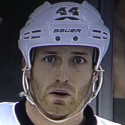




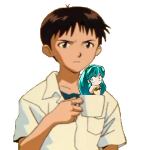


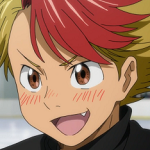
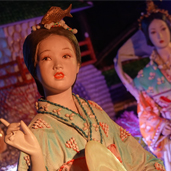







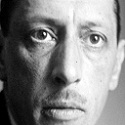

 ~*
~*


